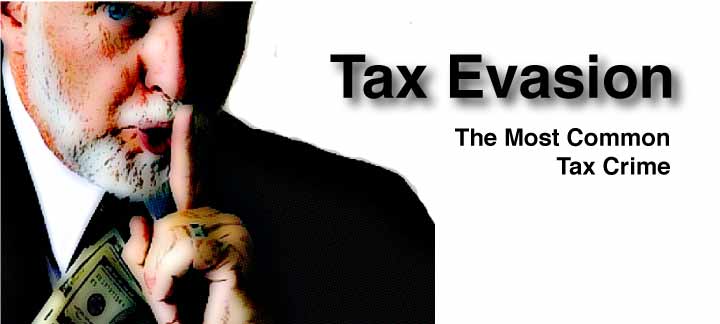Tax Evasion: The Most Common Tax Crime
What is tax evasion?
The most common tax crime is tax evasion, which is specifically defined in 26 U.S.C. § 7201 as a failure to report taxes, reporting taxes inaccurately, or failing to pay taxes. To establish a case for tax evasion under section 7201 of the Internal Revenue Code (IRC), the government must prove each of the following beyond a reasonable doubt: that the taxpayer attempted to evade or defeat a tax or payment of a tax; an additional tax was due and owing; and the taxpayer acted willfully. If the IRS proves its case for tax evasion against a taxpayer, the penalty can be significant.
How does the IRS spot tax fraud and tax evasion?
The IRS usually spots instances of tax fraud and tax evasion through IRS audits it conducts on taxpayers. Some audits are conducted randomly, but most are initiated as a result of unusual activity. IRS professionals are highly trained to spot certain “red flags,” such as: 1) when a taxpayer claims a large number of deductions in proportion to their income, or 2) when a taxpayer with significant assets declares very small income. There are other “badges of tax fraud” that the IRS consistently looks for:
- understatements of income;
- inadequate records;
- failure to file tax returns;
- implausible or inconsistent explanations of behavior;
- concealment of assets;
- failure to cooperate with tax authorities;
- engaging in illegal activities;
- attempting to conceal illegal activities;
- dealing in cash; and
- failure to make estimated tax payments.
What are the possible penalties for tax evasion?
As opposed to civil tax fraud, criminal tax evasion is a criminal offense which means the penalties go beyond simply paying a fine. The IRS can decide to simply impose civil taxes, but it may instead choose to charge the taxpayer with criminal tax evasion. In the case of civil tax fraud, the fine may be equal to 75% of the tax due, plus interest.
If the government proves its case for tax evasion, the taxpayer may be penalized with criminal fines, civil fines, or possibly even jail time. In collecting fines, the IRS has the ability to freeze money in checking and/or savings accounts, garnish wages, levy tax liens, or seize assets.
The Importance of a Tax Attorney in Tax Evasion Cases
Tax evasion and other tax crimes are extremely serious. The IRS has the power to impose significant penalties, including fines and jail sentences, if it suspects a taxpayer has committed any form of tax fraud. In these situations, it is important for an accused taxpayer to have a knowledgeable tax attorneywho understands the law and can fight for your rights. If you have been accused of tax evasion, call The Tax Lawyer William D Hartsock for a free consultation with all of the protections of attorney client privilege.



Comments (0)